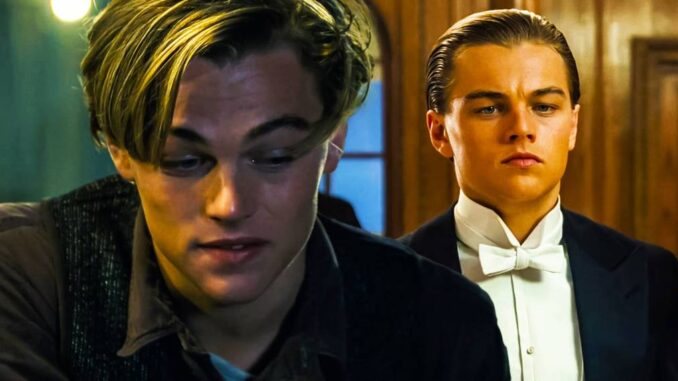
The RMS Titanic, a vessel synonymous with tragic grandeur, has held the world captive for over a century. Its story, immortalized in film and countless narratives, conjures images of opulence, hubris, and an inevitable, icy fate. Yet, beyond the historical facts and the epic love story of Jack and Rose, a fascinating, utterly modern theory has surfaced from the labyrinth of online fan theories: What if Jack Dawson, the charming, impoverished artist, was not merely a passenger by chance, but a time traveler on a crucial mission?
At first glance, the notion seems absurd, a whimsical imposition on a tale steeped in historical realism. But a closer inspection, through the playful lens of speculative fiction, reveals an intriguing pattern of “evidence” that lends this theory a curious, compelling logic. The foundation of the Jack-as-time-traveler theory rests on a handful of seemingly anachronistic details woven into his character and dialogue, subtle threads that, when pulled, unravel a surprisingly coherent narrative.
Consider, for instance, Jack's casual mentions of modern attractions. He speaks to Rose of taking her to "Pine Lake," where they could "go fishing… off the pier." While Pine Lake is a real place, a man-made reservoir near Chippewa Falls, Wisconsin, it wasn't dammed and filled until 1917, five years after the Titanic sank. Similarly, his description of a rollercoaster ride on the Santa Monica Pier – "You get on the thing and it goes like this… up and down" – while the pier existed, the first significant rollercoaster there wasn't built until 1917. These aren't just minor historical oversights; they are specific, future-dated references that, in the context of a carefully researched film, stand out like temporal beacons. Why would a poor artist from the 1890s describe attractions that don't yet exist? Unless, of course, he's experienced them in another time.
Beyond these overt clues, Jack’s very demeanor and knowledge hint at a man out of time. His free-spirited, unrooted nature, his lack of traditional ambition, and his almost philosophical detachment from societal norms could be interpreted as the traits of someone who doesn't quite belong to this era. He’s not driven by the period's obsession with class or wealth, finding value in experiences and emotions over material possessions. His skill as a portrait artist, capturing the essence of people with an almost photographic precision, could be seen not just as talent, but as a deliberate act of documentation – a means for a time traveler to record the past he is inhabiting. Furthermore, his famous line, "I figure life's a gift and I don't intend on wasting it… You never know what hand you're gonna get dealt next. You learn to take life as it comes at you," resonates with a wisdom that borders on premonition, almost like someone who knows the fragility of existence and the unpredictable whims of fate.
But if Jack was a time traveler, what was his mission? The most compelling answer points directly to Rose DeWitt Bukater. Rose, a pivotal figure in the Titanic's story, is not just a survivor; she is the witness, the narrator, the vessel through which the entire epic is recounted decades later. Without Rose, the history we know, the detailed recounting of the events, might never have fully materialized. Jack’s singular, unwavering focus on saving Rose, even at the cost of his own life, transcends mere romantic devotion; it becomes a critical imperative. He doesn't just save her from suicide; he saves her repeatedly from the sinking ship, guiding her through the chaos, ensuring her survival against all odds. His final sacrifice, remaining in the icy water to ensure she had the only viable piece of debris, can be seen as the ultimate fulfillment of his temporal contract – ensuring the correct historical outcome, no matter the personal cost. He wasn't there to change history, but to preserve it, to ensure the right people survived to tell the right story.
The enduring appeal of such fan theories lies in their ability to inject fresh wonder into familiar narratives. They transform the tragic into the mysterious, the mundane into the purposeful. The Jack Dawson time-traveler theory, while wholly speculative and undeniably fantastical, offers a fresh lens through which to appreciate the film and its characters. It elevates Jack from a mere romantic hero to a figure of cosmic significance, a guardian of the timeline. It recontextualizes every subtle glance, every out-of-place remark, imbuing them with hidden meaning and a deeper purpose.
Ultimately, whether Jack Dawson was merely a fictional character with a few anachronistic lines or a clandestine agent from the future, the theory serves as a testament to the enduring power of storytelling and the boundless imagination of its audience. It reminds us that even in the most well-known narratives, there can always be another layer, another secret waiting to be unearthed, transforming a classic tragedy into a delightful puzzle of temporal intrigue. And perhaps, as the icy waters of the Atlantic still guard the Titanic's secrets, Jack Dawson's true origin remains one of its most charming, enduring mysteries.